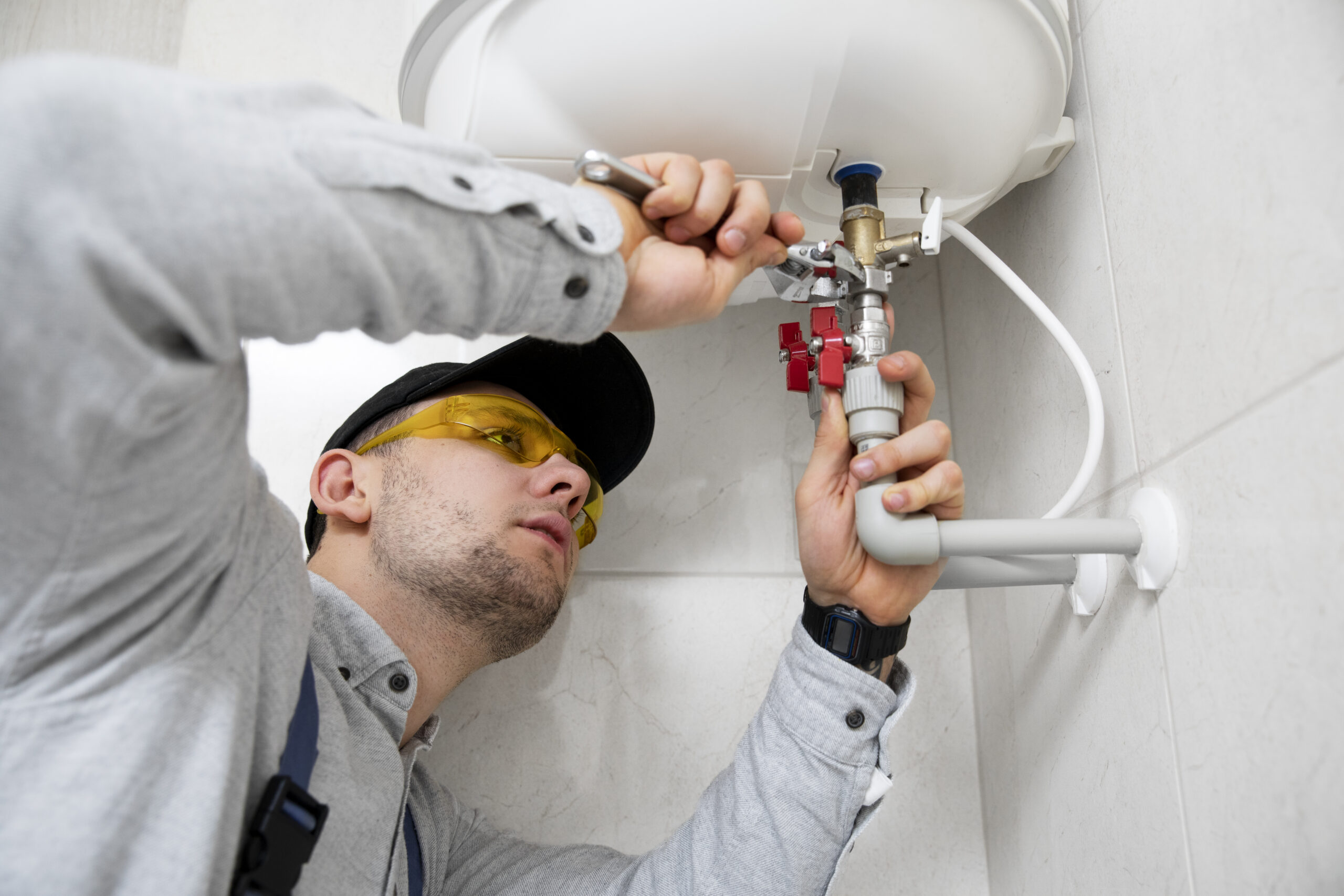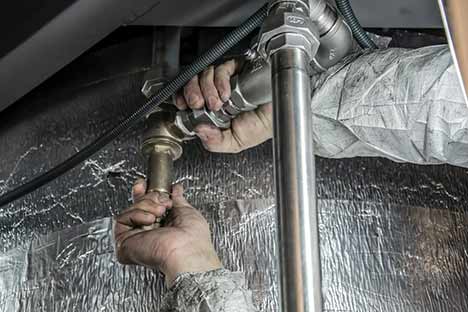Urgent Repair Advice: How to Manage Issues Until Assistance Arrives
Urgent Repair Advice: How to Manage Issues Until Assistance Arrives
Blog Article
We've unearthed this article involving Expert Tips for Managing a Plumbing Emergency Until Help Arrives listed below on the net and accepted it made perfect sense to write about it with you on my blog.

Pipes emergencies can strike at any time, triggering anxiety and possible damage to your home. Whether it's a burst pipe, a blocked drainpipe, or a leaking tap, recognizing just how to manage the situation until an expert plumbing technician gets here can conserve you from more difficulties. This write-up provides important emergency situation pipes pointers to aid you minimize damages and reclaim control throughout a pipes situation.
Switch off the Water
The first step in any pipes emergency situation is to shut down the water. For local concerns, such as a dripping faucet or toilet, turn off the valve near the component. When it comes to a major leak or ruptured pipeline, find your home's main water shut-off shutoff and transform it off instantly. Recognizing the place of these valves ahead of time can save valuable time throughout an emergency.
Shut Off Your Hot Water Heater
In specific emergencies, such as a burst pipeline, it's a good idea to turn off your water heater. This stops overheating or damages to the device when water quits flowing. Switch off the power supply to the hot water heater (electric or gas) and let it cool off to avoid possible dangers.
Temporarily Stop a Burst Pipeline
A burst pipeline can cause significant water damages in minutes. To minimize the problem:
Call an expert plumbing right away to resolve the trouble permanently.
Have an Emergency Plumbing Set
Prepare a fundamental pipes emergency situation package to take care of small issues properly. Your kit needs to include:
Having these tools handy can make a substantial difference in your ability to manage emergencies.
Unclog Drains Safely.
A stopped up drainpipe can be an irritating and messy concern. Here's how to tackle it:.
If these techniques don't work, avoid making use of extreme force, as it may worsen the blockage.
Manage Overflowing Toilets.
An overruning commode can create prompt turmoil. Below's what you ought to do:.
Address Tiny Leakages with Short-term Fixes.
Tiny leakages can rapidly become substantial issues if left unattended. Make use of these momentary fixes till expert help gets here:.
While these fixes aren't irreversible, they can assist reduce water loss and damage.
Take Care Of Frozen Water Lines Thoroughly.
In colder climates, frozen pipelines are a common emergency situation. If you think a frozen pipeline:.
Know When to Call a Specialist.
While quick fixes can help momentarily, certain pipes concerns need prompt expert attention. Call a plumbing professional if:.
Without delay getting in touch with an expert ensures the issue is settled correctly and avoids more complications.
Stop More Damage.
Taking quick activity to minimize damage can conserve you money and time in the long run. Here's exactly how:.
Final thought.
Pipes emergency situations can be frustrating, yet with the right knowledge and tools, you can handle the scenario properly until help arrives. By shutting off the water system, attending to tiny leakages, and using temporary fixes, you can reduce damages and maintain your home safe. Bear in mind, these pointers are short-lived remedies; constantly seek advice from a qualified plumbing professional to handle the root cause of the problem. Preparation and quick reasoning are your ideal allies in any kind of pipes emergency situation.
8 Helpful Tips for Managing Plumbing Emergencies at Home
If your plumbing system hasn’t failed once, wait for it because almost everyone has a story to tell. Sometimes, it could be simple emergencies such as a leaking pipe, a blocked cistern, or even a big burst pipe. In situations like this, you need to have some handy tips to save you some money and from possible damages.
Take care of minor issues early.
Sometimes, you could have avoided an emergency by taking proactive measures while it was still early. Some major plumbing emergencies can be a result of an ignored minor issue. We recommend that you have items like plumbing tapes and other related items. A plumbing tape can allow you to manage minor leaks before the plumber arrives.
Cut off the water supply.
This tip is essential in almost any type of leakage problem. For problems like minor leakages in the toilet or kitchen, turn off the supply that takes water to the affected pipes. If the leakage is a major pipe, you must shut off the supply valve to the entire building. This will help you avoid flooding your home and neighbors if you share a flat.
Know your plumbing system
Folks typically move into a new apartment without understanding the water supply around the building. This can prove disastrous if a water emergency arises and the plumber is far away. The previous tip will prove useless if you don’t practice this one. More importantly, know where your water shut-off valve is located – you’ll need that knowledge to prevent potential home floods.
Have some common handy tools
There are lots of plumbing emergencies that you can handle without hiring a plumber. That’s why you must keep some tools available always. Some tools that you can use to fix simple plumbing emergencies easily include plumbing tapes, screwdrivers, thread seal tapes, plungers, pliers, tape measures, and rubber gloves.
Insulate your pipes from cold
You’ll save yourself from many plumbing expenses if you protect your water pipes from the cold. This is because of the harmful effects that cold weather can have on your pipes. During winter, your pipes can burst from being overly expected to freezing temperatures. So, make sure insulators are there to keep the pipes working correctly.
Avoid practices that will clog your toilet.
Many people indulge in practices that can damage the plumbing system of the entire building. One of these is when they use their toilet to dispose-off garbage. They flush all kinds of things, such as paper towels, bandages, hairs, female sanitary products, etc., down the toilet. This will block your toilet in the long run, incurring unnecessary expenditures. Dump such waste in the trash instead.
Check your dials regularly.
Sometimes, there could be leakages in your home without noticing them in time. So, constantly monitor your water meter dial. If the dial is reading when there is nobody using water, this is an indicator that there is leaking. Check for leaks immediately. Call a plumber as soon as possible if you can’t find any.
https://www.constructionplacements.com/8-helpful-tips-for-managing-plumbing-emergencies-at-home/

As a devoted reader about Expert Tips for Emergency Plumbing Repairs, I figured sharing that section was worthwhile. Are you aware of another person who is sincerely interested in the subject? Feel free to share it. I thank you for your readership.
Book Your Appointment Report this page